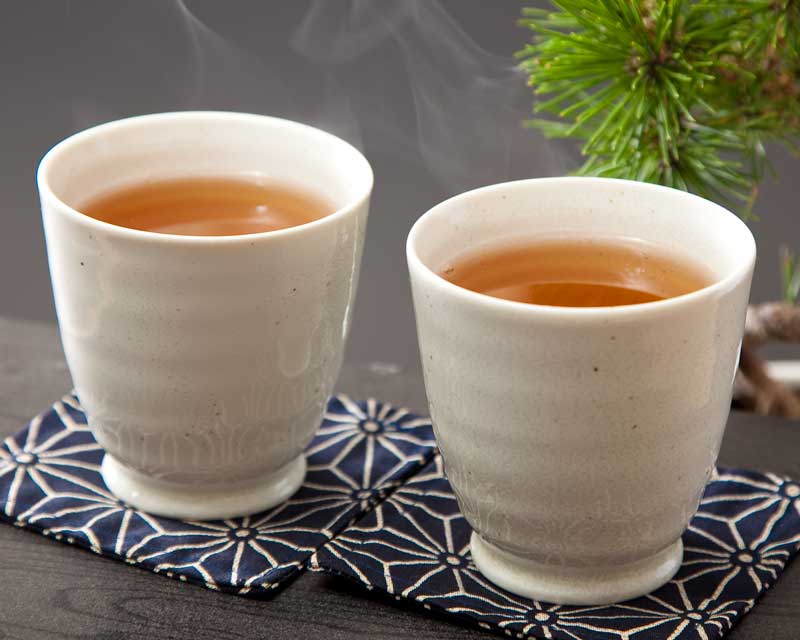 Mitoku Organic Kukicha is a deliciously soothing roasted tea with a warm brown color, mild flavor, and rich roasted aroma. The tea is made from the twigs, stalks, and stems of older and coarser leaves left over from the sencha harvest. Kukicha was traditionally called ‘a poor man’s drink’ as tea farmers would make kukicha for themselves after selling the more valuable leaves.
Mitoku Organic Kukicha is a deliciously soothing roasted tea with a warm brown color, mild flavor, and rich roasted aroma. The tea is made from the twigs, stalks, and stems of older and coarser leaves left over from the sencha harvest. Kukicha was traditionally called ‘a poor man’s drink’ as tea farmers would make kukicha for themselves after selling the more valuable leaves.
The main characteristic of kukicha is that it does not have any stimulating effect as the tea has only one-tenth of the caffeine content of sencha. While young tea leaves tend to have higher concentrations of caffeine, the leaves used for kukicha are older with naturally less caffeine. In addition, kukicha is roasted over a high heat during the final stages of processing, rendering much of the caffeine as well as the astringent catechin components inactive. This makes it an ideal choice at any time of the day for both adults and children alike.
Soon after harvesting, the kukicha twigs are stored and aged for at least three months, then cut and graded according to size. Each grade is then roasted separately at different high temperatures and lengths of time to ensure uniformity. Finally, the twigs are blended and packaged to the right ratio.
In addition to kukicha, Mitoku offers a variety of other teas such as our warming Organic Hojicha and Organic Genmai Kukicha (a blend of kukicha and brown rice). Explore our selection below.
-
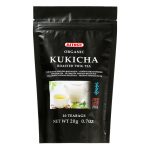
Organic Kukicha
Kukicha is a deliciously mild and soothing roasted tea, with a warm brown color, rich roasted aroma, and just one tenth of the caffeine content of sencha. It is made from the twigs, stalks, and stems left over from the sencha harvest. The twigs are steamed and dried, stored, and then roasted.
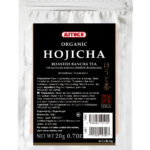
Organic Hojicha
Hojicha is a roasted green tea made from mature leaves, picked outside of sencha season then briefly steamed to prevent oxidation. The leaves are then rolled, dried, and roasted at a high heat. Hojicha has a heart-warming, rich, nutty flavor and a distinctive toasted aroma. Mitoku’s hojicha contains a small amount of twigs, which gives the tea delightful complexity and depth.
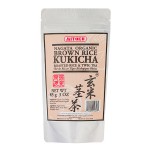
Organic Genmaicha
Genmaicha, or brown rice tea, is a soothing blend of Japanese green tea and brown rice kernels, slowly oven-roasted in black volcanic sand until popped. Delicious both hot and chilled, it has the warm aroma of roasted rice and a mild, nutty taste, with no astringency or bitterness. Genmaicha has choices of green tea version and roasted kukicha version.
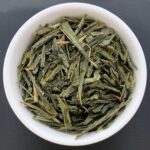
Organic Bancha
Mitoku’s Organic Bancha is made using the large, coarse tea leaves picked late in the harvest. These leaves are lightly roasted, giving the tea a refreshing flavor with gentle earthy and woody tones. This tea is a great choice to enjoy after or during mealtimes.
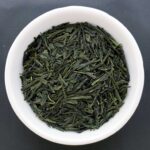
Organic Gyokuro
Though less well known in the West, gyokuro is renowned in Japan as the pinnacle of green tea. Combining the best elements of sencha and matcha, gyokuro leaves are shaded for several weeks before harvesting to develop their umami-rich amino acids, then steamed, dried, and rolled into needle shapes in the same way as sencha. Brew in small batches to fully savor this exquisite tea’s distinctive aroma and delicate yet complex flavor.
To make a perfect cup of Japanese tea, the most important points are the hardness and temperature of the water, the ratio of tea leaves to water, and the steeping time. Where possible, soft water should be used.
The water should be boiled and poured over the leaves, then left to steep. Hotter water will release more catechin into the tea, making it more bitter. Cooler water will release more amino acids into the tea, resulting in more pronounced umami and sweetness. Higher grade teas are best prepared using warm, rather than piping hot, water. Using water that is too hot may mean that some of the more delicate flavors are overwhelmed. Equally, steeping the leaves for too long can make the tea dark and overly bitter.
Roasted teas like kukicha, hojicha, and bancha are the easiest Japanese teas to brew. As an alternative to brewing the leaves in a teapot, these roasted teas can also be simmered or boiled in a saucepan to extract their full flavor.
Loose tea
Makes 1 litre
- Add 3 level tbsp of leaves to a saucepan, together with 1 litre of water.
- Bring to a boil and simmer gently for 3-5 minutes.
- Strain and serve hot or chilled.
Make 2 cups (300ml)
- Place 2 tsp (5g) tea leaves in a teapot, or more according to your taste.
- Pour 300ml boiling water into a teapot and steep for 2 minutes, or 3 – 5 minutes for a stronger taste.
Teabag
- Pour boiling water (90 – 100℃) over a teabag in a mug or cup.
- Steep for 1-2 minutes.
Related Recipes


